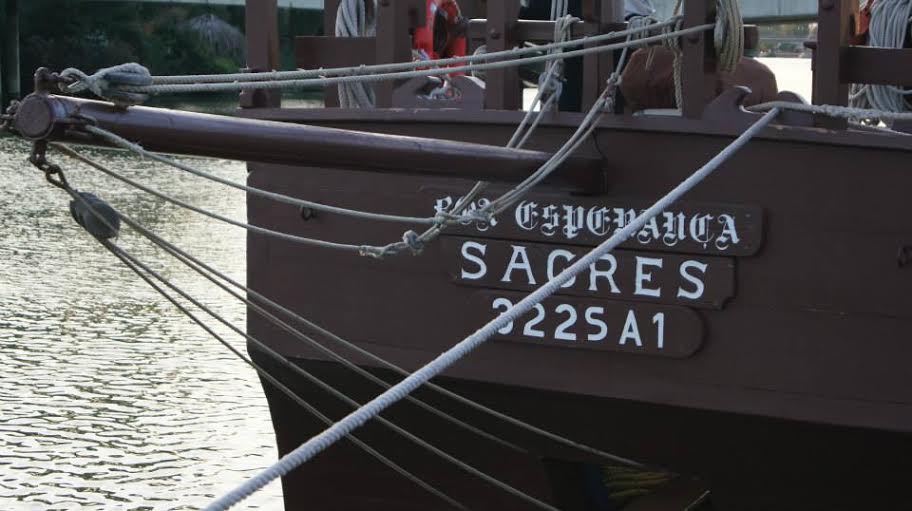 To celebrate the anniversary of the first trip around the world, the Algarve Tourism Region and Fundación Nao Victoria took to Seville one of the most emblematic boats in the history of Portugal, the Caravela Boa Esperança, which will be open to the public for visits, with free entry until tomorrow, 10th of September.
To celebrate the anniversary of the first trip around the world, the Algarve Tourism Region and Fundación Nao Victoria took to Seville one of the most emblematic boats in the history of Portugal, the Caravela Boa Esperança, which will be open to the public for visits, with free entry until tomorrow, 10th of September.
Today, the 9th, at 19:30 pm, an Algarve cataplana showcooking will take place on board the caravel, in order to promote the flavors of regional cuisine and the Mediterranean diet in Spanish lands.
Prepared by a team from the Tertúlia Algarvia restaurant, this showcooking will be aimed at the local press and official entities.
The occasion will also serve to present the “365 Algarve” program to the Spanish market. This program of tourist development and promotion of the territory aims to reinforce and qualify the cultural program of the region between October and May, outside the peak season of tourism in the Algarve, ensuring a calendar of initiatives that can guarantee the attraction of national and international tourists throughout the entire period. year.
«The Caravela Boa Esperança sailed once again to Spanish waters, with the aim of taking not only the glories of a discovering past, but also to promote and publicize the Algarve's destination and its cultural offer. We believe that this type of approach, more original, will stimulate the interest of the Spanish public, one of the main sources of tourists in the Algarve, which was responsible for 300 thousand overnight stays in the region in the first half of 2016», says Desidério Silva.
The first circumnavigation voyage in the world left the port of Sanlucar de Barrameda, at the mouth of the Guadalquivir, in 1519, captained by the Portuguese Fernão de Magalhães, in the service of the King of Spain. The voyage, which took the sailors to cover 42 nautical miles, more than half of them in seas truly never navigated before, ended in September 1522, with the return to Spanish lands, already captained by Juan Sebastian Elcano, once the Portuguese Magellan had died during a battle in Cebu, in present-day Philippines.


















Comments